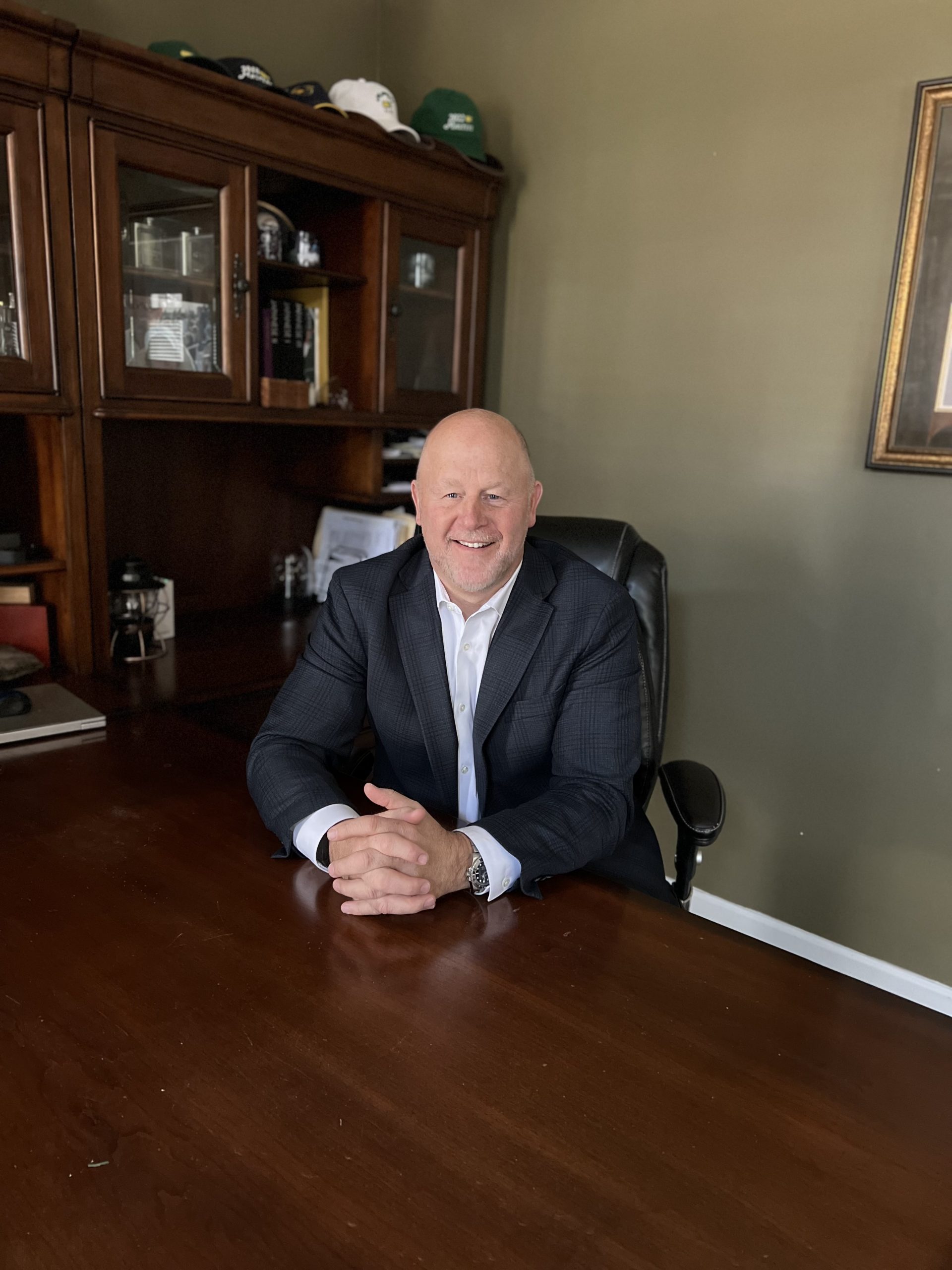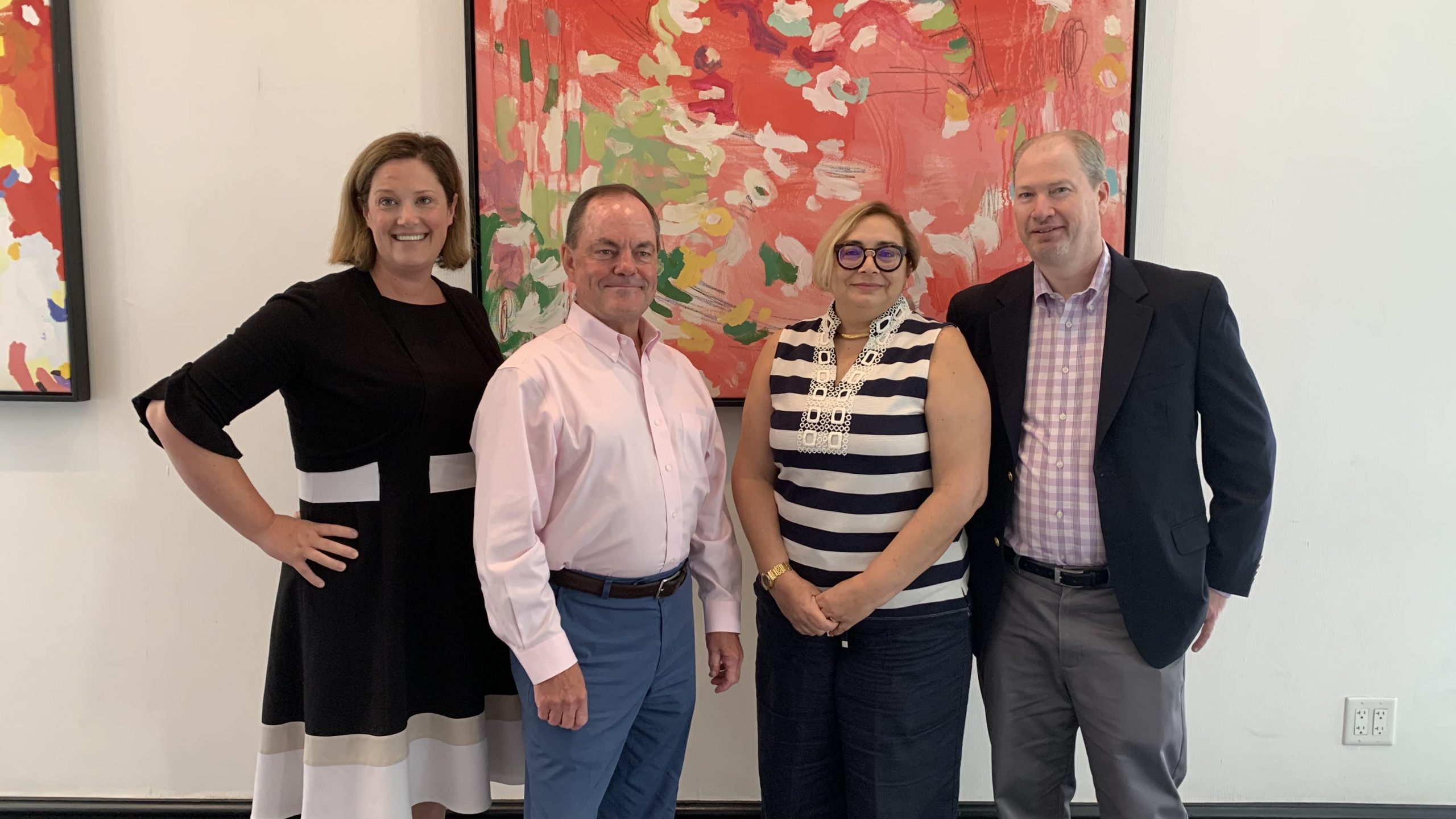
Engaging with Executives: NorthPointe Hospitality Management President Greg Winey
By David Berman | February 20, 2023
Introducing a new series from Hotel Interactive — Engaging with Executives. This series will consist of Q&As with executives around the hospitality industry, breaking down recent trends and news in their companies and the industry as a whole.
The first entry in this series features Greg Winey, an accomplished hotelier with a career in hospitality spanning over 40 years, having served in the capacity of many senior leadership positions including President, Vice President, Director of Hotel Operations, Asset Manager, Senior Area Manager/Director, and General Manager for some of the most notable hotel companies in the nation.
After a seven-year stint helping grow to the 3rd largest privately held hotel management company in the nation for a publicly traded REIT with just under 9,000 rooms and 5,000 employees, Greg ventured out on his own to start NorthPointe Hospitality Consultants in 2005. After a seven-year successful consulting run, Greg founded NorthPointe Hospitality Management in early 2011 and had his first hotel under contract in 2012.
By 2019, Greg was able to grow NorthPointe’s portfolio of hotels to $42 million in managed revenues, with today’s asset value of just under $300 million – becoming a Top 100 Third Party Management Company.
Hotel Interactive sat down with Winey during the 2023 BITAC Food & Beverage conference on Jan. 23 in Sonoma, California, to chat about his work in consulting, trends in food and beverage, and how NorthPointe has evolved over the years.
This conversation has been edited for length and clarity.
Hotel Interactive: I want to go back to when you first started out in the industry as a bellman. I’d love to hear about what you learned doing that job that translates to doing your current role.
Greg Winey: It was Florida, I was 16 years old, so it wasn’t bad to be around the sand and surf. (laughs) But anyway, I learned how to hustle and you got tipped with real cash and that was a big deal. I learned to be nice to people, and you can anticipate some of those needs, they are intuitive. You know, if someone’s not walking well or someone needs help up the stairs or, you know, they look like they need a drink, and you offer in advance of them asking, people will gladly time and again take care of you, so I got a lot of satisfaction out of pleasing people. And I think in this business, if you’re not there to please people to make people feel a certain way, then you ought not to be in the business. So it started with me very, very early, and it’s carried throughout my entire career. I am here to serve not to be served, especially in my role.
HI: What was your time like as a consultant?
GW: That was interesting. Consultants, you know, can have a really bad reputation, because people don’t always trust consultants because they draw projects and they’re trying to get fees, and there’s no accountability, often. And so what I did is, I changed that. I said, “Look, if I can’t get you two and a half times my fees in new, bottom line profitability, I won’t charge you a dime.” So I put my money where my mouth was, because I knew how to really look at a profit and loss statement, and begin to forensically break it down and say, “Where can I find better efficiencies?”
When I’m consulting, I’m generally trying to find more profitability for the hotel, not at the risk of hurting the service, but making people better at what they do. And I don’t care if it’s culinary, the room side, it doesn’t matter where it is. And often what I find is people just need to be educated on these things. So it’s not like they didn’t want to do it, it’s just they weren’t directed to do it, so they don’t pay attention to it.
HI: How have you enjoyed your experience at BITAC so far? And with conferences in general, what do you feel are the benefits of coming to an event like this?
GW: Number one by far, above and beyond, it’s the relationships. Some of these vendors, and I’ve said this before, have really saved my butt during some really tough times. I think everyone uses the word networking. I don’t know if I would use the word networking because I think it’s much deeper than that. Networking is somewhat superficial to me. This is a real relationship where you’re breaking bread with people, you’re getting to know them on the personal side. And I have to say that, there’s always somebody I’m sure that you say, “Well, I didn’t particularly prefer that individual.” But by and large, man, everyone is likable, and if you like and you trust people you will do business with them. I think the creativity and the cutting edge of what I see on the technology side, and the new efficiencies, no matter what that business discipline is, I love that. I always take away a nugget of something that can be a rainmaker for me later somewhere else, doesn’t matter what it is.
HI: Your company offers a wide range of services to clients. How do you balance these services and maintain excellence across a wide range?
GW: Yeah, we try not to be everything to everybody, but at the end of the day, we know that businesses employ other businesses to make money, right? But there’s a right and wrong way to make money. We’re all about efficiency. I’ve got a very small staff that will handle between $40-$50 million, no problem, at a home office. Sometimes the brands are better at certain things than we are — could be at revenue management, quite frankly, because they know that market. So we have to be willing to pivot and not get too ego driven on what we do. But all the services that we provide are because of the handful of very technical individuals that have been in the business. We know some of the big deeper GAAP financial requirements, we can structure an operating statement any way you want, we can do reporting any way you want, because of the nature of who I’ve hired.
But I didn’t stack and pack my corporate offices to feed my ego. The reason I also haven’t done that is because I know there’s a time when things aren’t so good. I didn’t lay a single person off that was salaried in this organization during COVID — in the field as well. We prepare for those bad days by virtue of, you know, hiring individuals who have really great knowledge, but our services are similar to a lot of hotel companies’ services. But what we do, I think better than most, is we drive operating margins, profit, create valuation for that hotel, and don’t do it at the demise – quite the opposite – of service. So we want to be the best in every market that we serve. It’s what the consumer says you are, it’s not what I say you are.
HI: So, we’re here at a food and beverage conference. I would love to hear about challenges that you’re facing on that side and how you’re approaching them.
GW: Look obviously, you know, labor is the word of the day. Again, with meeting individuals at BITAC, we got into pay entry through Adams Keegan. Adams Keegan helped us with pay entry, which allows an individual to get paid for that night’s performance immediately in their account. A lot of our staff are hourly; half of them are salaried. And those individuals that are hourly are often paycheck to paycheck. So if they have a crisis or something that happens, and they need their money now, we’re able to accommodate that. So we think over time, that’s going to really help with our turnover, which is important.
But the challenge has been, obviously, price escalation. The good news is we’ve been able to adjust our pricing on menus. You’ve seen it everywhere. I mean, you go to breakfast, sometimes you’re looking at the menu and it’s just meat for 50 bucks? So it’s kind of crazy when you look at that, but we’ve been able to really accommodate those higher costs, with higher menu prices. So I would say most hotels have benefited in terms of profit because of those things. Now, all that being said, if you have lower capacity, that may not be a bad thing. If you can charge higher rates, would you rather have two rooms sold at $100, $50 each or one room sold at $100? So it’s kind of the same thinking.
But look, the commodities business, if you’re talking about eggs, or talking about juice, or talking about proteins, it’s up and down, and eventually, it is going to get back to a normalized situation. I don’t think wages are going to change much. I think once people get to a certain level of a wage, they’ve taken a bite out of that apple, they’re not going back. So welcome to a new normal in terms of what we charge, and how much we have to pay for this product and services.
But I think I’m an optimist by nature. So I think when people see their 401k is decimated, that scared a lot of people, they’re gonna come back. Some of those retirees may say “I want to get back in the workforce.” They didn’t like the retirement anyway. And maybe they’ll work one to two days. That’s going to help, and with tech companies laying off right now, 10 or 20% of their workforce, somebody just lost income. And it’ll pull back a little bit. We do need to open up and figure out some immigration reform that hasn’t been done since the, call it the mid 80s or earlier, depending on what act you’re talking about. That’s got to open up. We got to figure that out. There’s some amazing, amazing individuals, and we’re all using them.
HI: What are the trends that you’re seeing in 2023 in the industry? That can be in F&B or throughout the entire industry.
GW: I think again it’s all about efficiency, less steps, maybe less ingredients at times or a smaller menu. Not being confined to a hood system — ventless equipment, so you can be an almost mobile kitchen, which is kind of cool. Point of sale, handhelds, things that allow fewer steps, if we are designing hotels, where we bring that kitchen up front and center where it’s a demonstration kitchen as an example — making it more efficient. A bigger menu doesn’t make it a better restaurant, what makes it a better restaurant is fanatical consistency. So, you know, reduce the amount of proteins on the menu, have some unique items, have some unique drinks, people are there for the local flair, and bring that into the hotel.
Technology, number one, your phone is your key, your phone is your communication — pre, during and post stay. Pre-texting engagement allows us to facilitate what guests may or may not want before their stay. So there’s a level of confidence that says, “Oh, you’ve reached out to me, you’ve already made me feel comfortable that you know I have a reservation, and you’re preparing for my arrival. That makes me feel better, especially with a contactless environment. So even though digital key has been alive and well, for quite some time, how do we structure that where we’re still getting the soft touch of human interaction? That’s important.
Monetizing space; every bit of real estate in a hotel is free game to make money. How do you do that? I need to know your habits, your patterns. So if we’re geotagging, you walk in and we know your habits, and you sit down, and we say, “Oh, Mr. Johnson, here’s your Crown, we know you like Crown,” or something to that nature. Monetizing parking spaces. You know, we pay taxes on parking. I think we should charge for parking. Bringing in some level of value system, don’t tell me I’m getting free internet. Of course I’m getting free internet, we should be getting free internet. But free coffee, other services, where you build it into a resort or destination. They can be okay with that, as long as they feel like they’re getting something, right?
I liked fixed income. It’s not always about RevPAR, but more about total revenue per occupant. So if I can charge $10 a night for parking, and I sold 30,000 rooms, that’s $300,000. It would take me double that in revenue to get to the profit levels, depending on the outlet or department. So I think we have to get fixed income versus variable. I see that coming, I do see destination or resort charges, I see them getting stronger. Here’s the big one, we lost a generation, meaning people just said, “I’m done.” It could have been decades of knowledge lost. Hotels are probably going to have to start budgeting back like they did in the old days for training. We’re going to have to hire internal trainers or go third party because we have to have a reboot, we lost a huge knowledge base. Sometimes, unfortunately, the blind are teaching and leading the blind. You don’t have those old wise sages in your hotel often enough.
And it’s a tough industry, this industry. We didn’t make the rules at seven days a week. This industry is 24 hours a day. I wish we could shut it down at five o’clock on a Friday. It just doesn’t work that way. So I’m not going to tell people they don’t have to work weekends. In some cases, the weekends make up most of our week in revenues. So how do you balance? I do believe piecemeal shifts in terms of hours are absolutely coming. I think people are deploying it now, hoteliers are. I think self scheduling, we’re way behind the eight ball on that. If you look at the hospital systems, they’ve been self scheduling for 25 years. I like the Uber approach, which is, “Hey, maybe I want to work three shifts, maybe it’s five or three hours.” So I think the flexibility of staffing is changing radically.
HI: North Pointe Hospitality Management celebrated its 10th year in October. In those 10 years, how would you say the company has evolved?
GW: We’ve learned a lot. I think that by virtue of the fact that we’re intertwined with the real estate team, we’ve really learned, I would say, the finance and banking side of the business, to understand the ownership mindset when it comes to taking the risk, purchasing an asset, and how to make sure we’re hitting all the bank covenants and all the things that are required to do to make it successful. That’s one thing. But I also think that it goes without saying, you can create a loyal team of people that go off with you in the business. You might start out as a desk clerk, go over to sales, and you become a director of sales, now you’re a GM. So we value internal growth beyond just about anything. And, you know, that’s not necessarily new news, but I just think I’ve reaffirmed that it’s all about people, no matter what’s happened, it’s always about people and how you treat them.





Get involved!
Comments